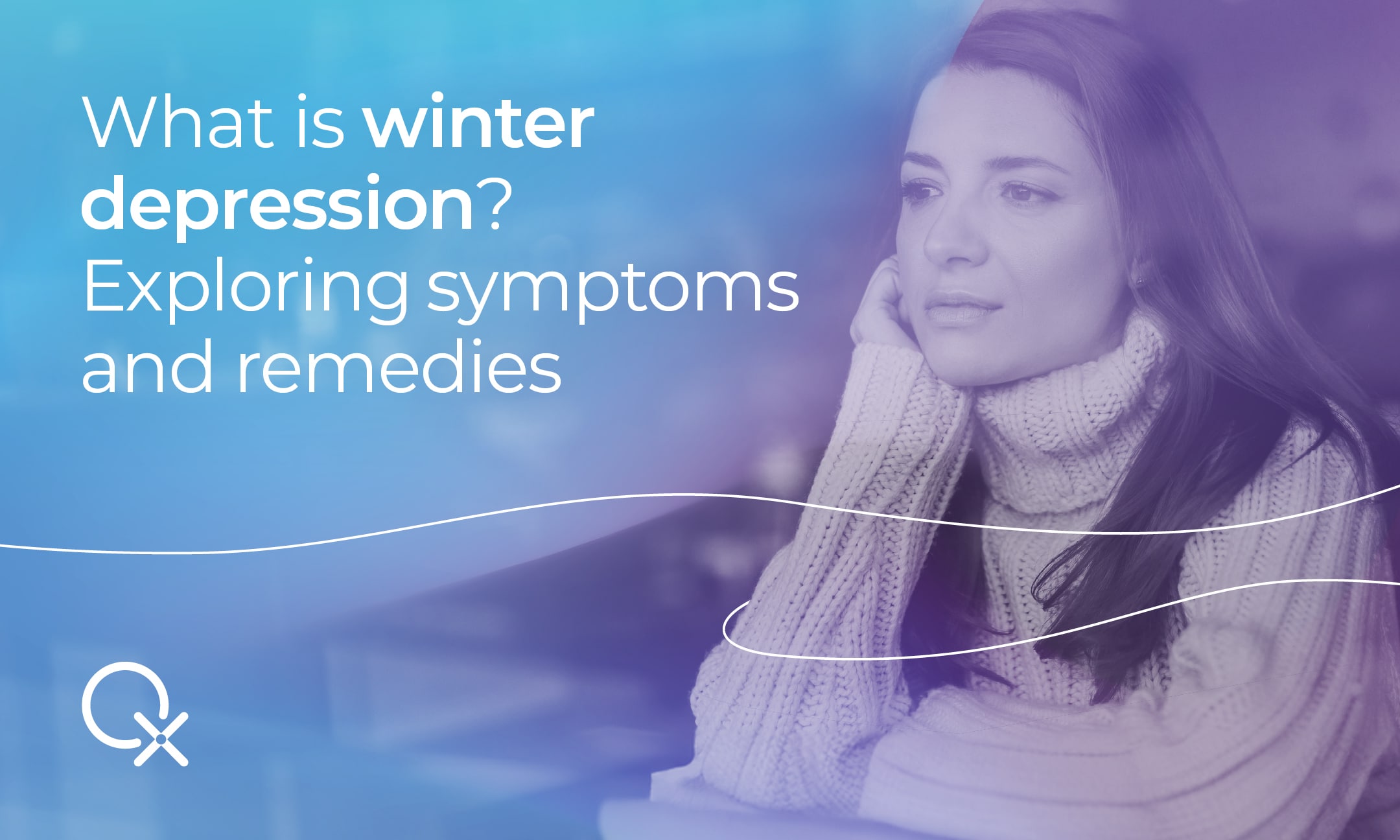
Winter depression, also called Seasonal Affective Disorder (SAD), is a form of seasonal depression that typically occurs in the winter, with fewer daylight hours. Experts believe that changes light exposure impact the circadian rhythm (the body’s internal clock) and disrupt the production of neurotransmitters such as serotonin and melatonin, possibly leading to winter depression.
Serotonin is a neurotransmitter that regulates moods and emotions, contributing to feelings of well-being. Melatonin, a hormone produced in response to darkness, plays a crucial role in the sleep-wake cycle, promoting restful sleep. Balanced levels of serotonin and melatonin are vital for mental health, mood stability, and maintaining a healthy sleep pattern.
Winter depression is quite similar to major depressive disorder in terms of symptoms. Common signs of both types of depression include (but are not limited to):
To get out of winter depression or to feel less depressed in winter, light therapy (phototherapy) often proves helpful as it can help regulate the body’s internal clock or circadian rhythm.
Light has a crucial effect on our sense of well-being. Natural sunlight is a primary source of vitamin D, which the body uses to produce serotonin, commonly known as the ’feel-good’ neurotransmitter. Additionally, exposure to light helps improve our sleep-wake cycle.
Light therapy can involve exposure to bright artificial light that mimics natural sunlight, or increased exposure to natural light. The latter can include outdoor activities or leaving curtains open at night to let in more natural light in the morning. Various studies have shown light therapy to be effective in treating winter depression as well as mood disorders including major depressive disorder and bipolar disorder.
It is an established fact that nutrition plays a crucial role in supporting mental health as well. Adopting a diet for boosting your immune system or adding certain foods to your diet can have a positive impact on your mood and overall well-being.
Below are some foods known to have a positive impact:
Winter depression can bring unique challenges to our mental well-being. Understanding the symptoms and incorporating effective strategies can make a significant difference. Whether it’s embracing the benefits of light therapy to regulate your internal clock or making mindful choices in your nutrition, there are plenty of fairly easy steps you can take to feel less depressed in winter. However, remember that seeking support from healthcare professionals, friends, and family is a sign of strength.
+1 (989) 681-1063
+1 (856) 322-8589